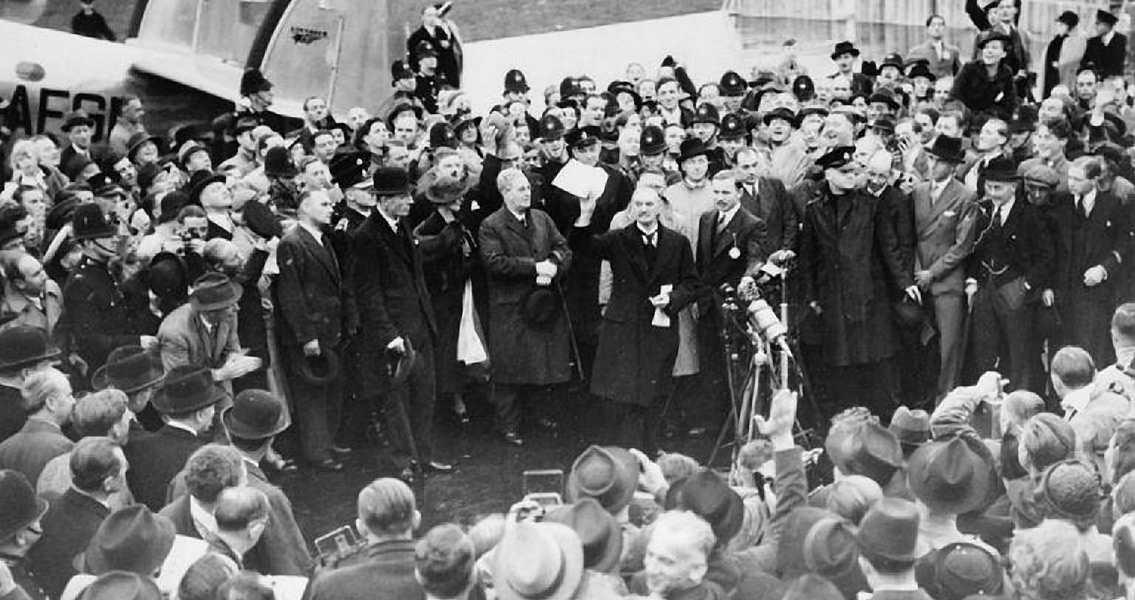<![CDATA[On 15th September, 1938, British Prime Minister Neville Chamberlain met Adolf Hitler at Berchtesgaden in an event which would prove one of the most blatant and controversial examples of Britain pursuing Appeasement at any cost. The meeting was focused on a growing crisis in Czechoslovakia. The country had been created as part of the Treaty of Versailles which brought the First World War to a close. The newly drawn up borders meant that a a significant German minority lived in the country, particularly in the western region of the Sudetenland. German Nazis living in the Sudetenland region started to rebel in summer 1938, demanding a union with Germany. The Czechoslovakian government implemented martial law, while Hitler threatened war against Czechoslovakia if the Germans living there were oppressed. Chamberlain and Hitler's meeting on 15th September resulted in a pledge which gave Germany control over all regions of Czechoslovakia with a German population over 50%. France was persuaded to agree to the secret agreement which had been reached without any consultation with the Czechoslovakian authorities. Several weeks later Hitler changed his demands, calling for complete German control of the Sudetenland. Again, Britain and France agreed, and Chamberlain infamously returned to England claiming he had won "peace in our time" Appeasement, the policy by which Britain and France turned a blind eye to German, Japanese and Italian aggression as a means to avoid war, is easy to condemn with hindsight. As our knowledge grows of the atrocities that took place under the Nazi regime in particular, Chamberlain's actions seem an example of unforgivable self interest which still eventually resulted in war, but one has to consider the context in which he was working. Chamberlain had witnessed first hand the horrors of the First World War, and his actions were reflective of a broader public desire to avoid another major conflict. On a more practical level, neither Britain nor its main ally France were ready for another all out war with Germany - one could argue that by delaying the conflict Chamberlain gave the British military more time to prepare for the onslaught of the German war machine. The League of Nations, the international body set up in the wake of the First World War and tasked with preserving peace, had been revealed as increasingly ineffective, blighted by not having its own armed forces and the lack of dedication of the member states to uphold its ideals. The Japanese invasion of Manchuria and then China in the mid-1930s, Italy's attack on Abyssinia, and the German remilitarisation of the Rhineland all revealed that the League of Nations was in fact incapable of upholding its commitment to preserve 'self-determination' around the world. By the time Chamberlain met with Hitler in Berchtesgaden, Italy and Germany had also broken an international non-intervention agreement by sending their militaries to intervene in the Spanish Civil War. A trend was developing that saw Germany and Italy becoming increasingly brazen with their aggressive foreign policies, with little resistance.]]>
Chamberlain Makes a Deal With Hitler
